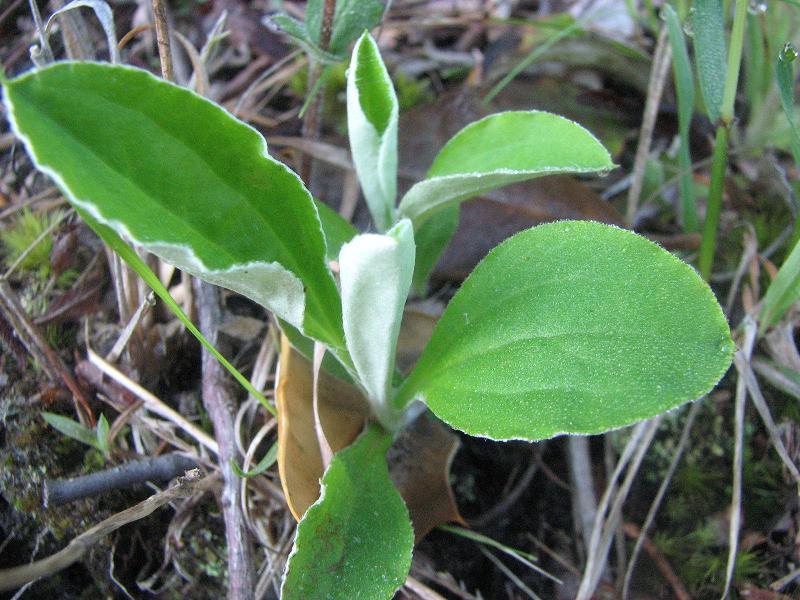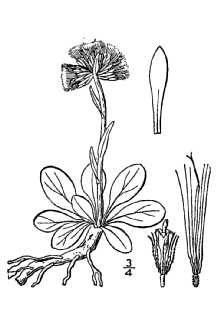Antennaria neglecta
  |
 |
Photo courtesy Renee Brecht |
Britton & Brown |
| Botanical name: | Antennaria neglecta Greene. |
| Common name: | field pussytoes |
| Synonomy: | Antennaria angustiarum Lunell Antennaria athabascensis Green Antennaria campestris Rydb. Antennaria chelonica Lunell Antennaria erosa Greene Antennaria howellii Greene var. athabascensis Antennaria howellii Greene var. campestris Antennaria longifolia Greene Antennaria lunellii Greene Antennaria nebraskensis Greene Antennaria purvula Green Antennaria wilsonii Greene |
| Group: | dicot |
| Family: | Asteraceae |
| Growth type: | forb/herb |
| Duration: | annual |
| Origin: | native |
| Plant height: | 4 - 14"' |
| Foliage: | basal leaves, spoon shaped or narrowly oval, broader toward tip, 1-2", densely hairy below, sparsely hairy on top; stem leaves, 3-10, smaller. forms mats; leaves have 1 vein |
| Flower: | small, white fuzzy heads, heads several and terminal, 1/4-3/8" |
| Flowering time: | bloom mid April to late June, most in May |
| Habitat: | dry sterile open ground of fields, lawns, thin woods and edges |
| Range in New Jersey: | statewide; infrequent in pine barrens |
| Heritage ranking, if any: | n/a |
| Distribution: |  |
| Misc. | Clemants and Gracie say "Pussytoes are a small group of difficult species. The male and female parts are produced on different types of heads on different plants. The female heads are often fuzzier. They are somewhat related to cudweeds. Critical characters are leaf shape, venation, and head number" ( Wildflowers in th Field and Forest, p 374) In NJ: Antennaria neglecta-leaves with 1 vein Antennaria plantaginifolia-leaves with 3-5 veins There is a wide variability within this species. The flowers dry well. Hough states that the seeds are edible and that the gum from the stalk may be chewed. Antennaria:��from the Latin��antenna, because of the resemblance of the male flowers to insect antennae; neglecta:��neglected or overlooked Visited by small bees and flies-Halictid bees; Andrenid bees; Syrphid flies; and the foliage is larval food for caterpillars of the American painted lady butterfly (Vanessa virginiensis). |